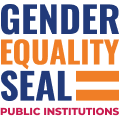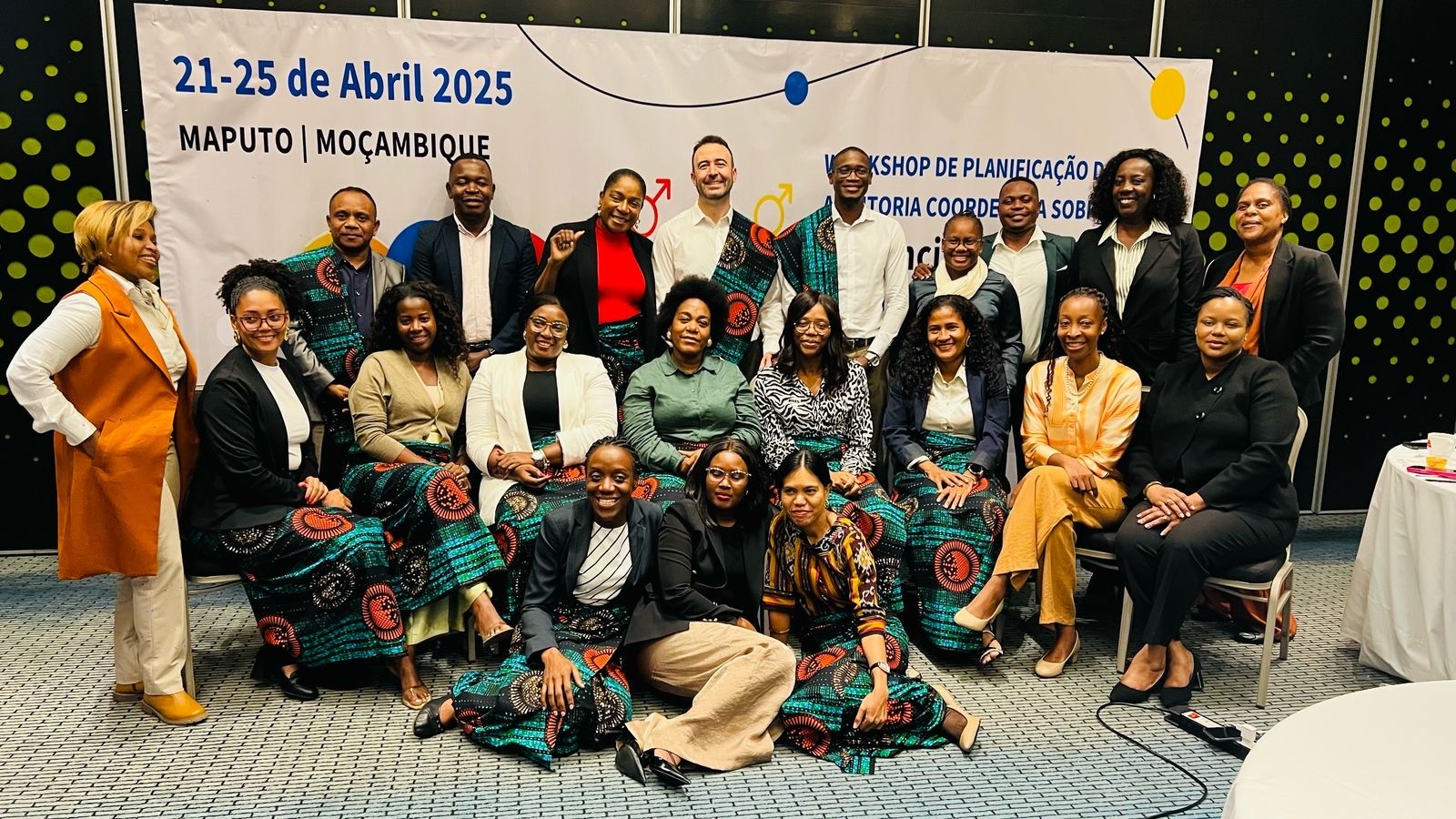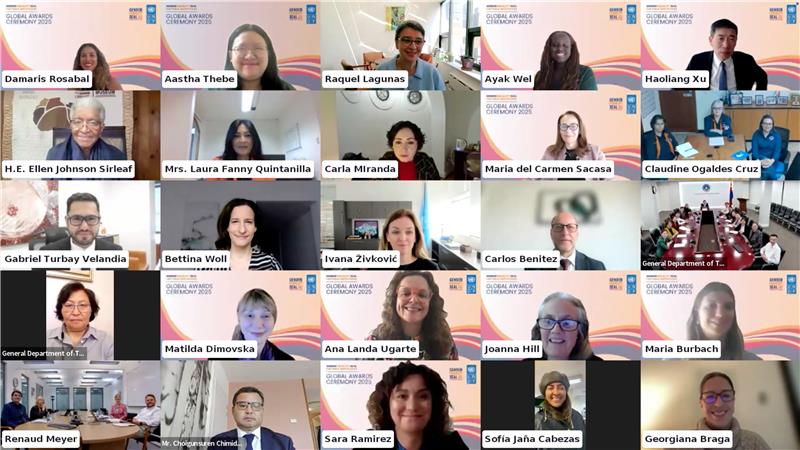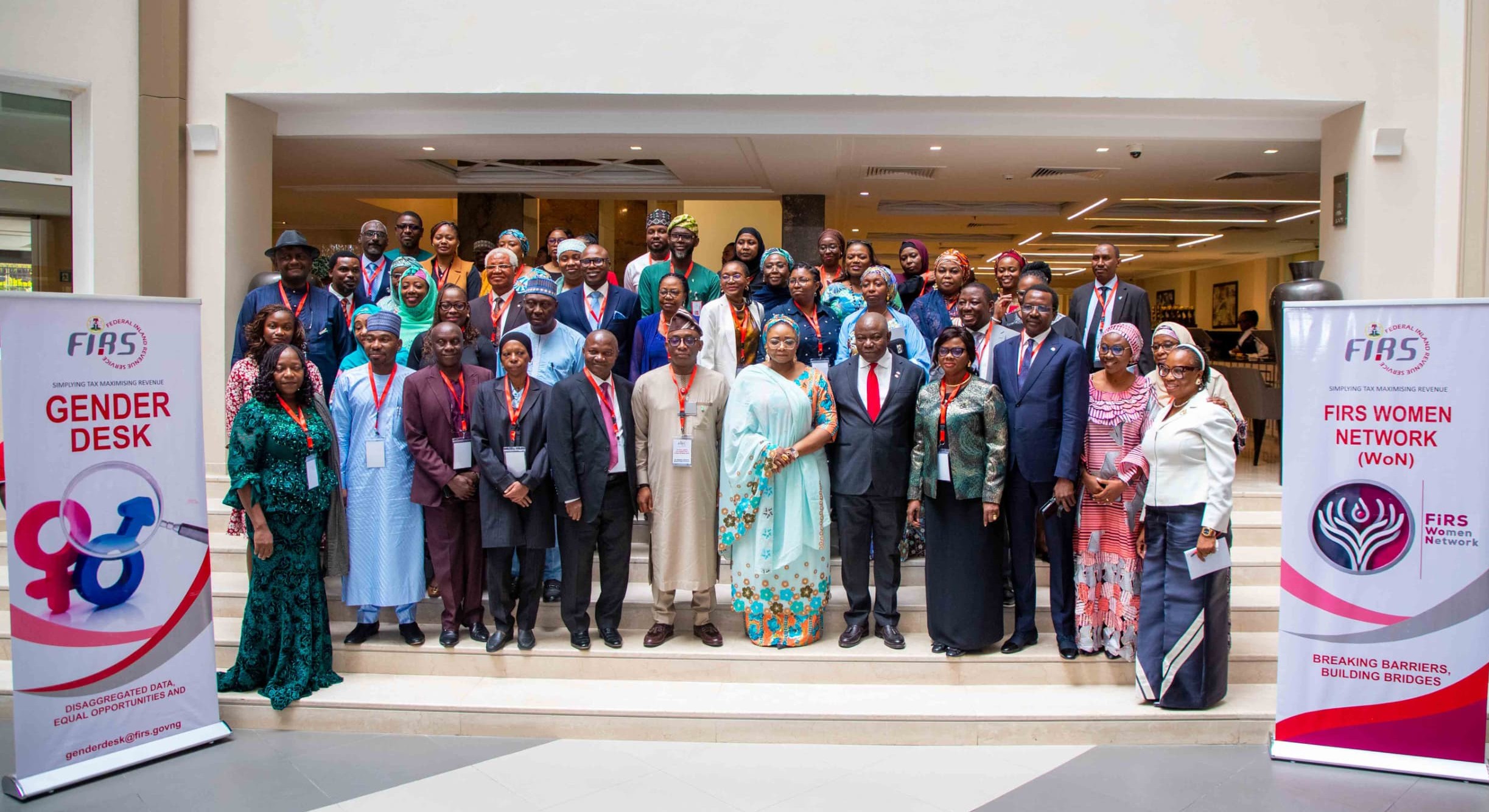UNDP Gender Social Norms Index Report (GSNI)
Global progress in achieving gender equality has stalled: for the first time the Global Gender Inequality Index (GII) shows no improvement since 2019. Gender bias is a pervasive problem worldwide according to The Gender Social Norms Index (GSNI) report that was published recently. GSNI quantifies biases against women, capturing people’s attitudes on women’s roles along four key dimensions: political, educational, economic and physical integrity. The index, covering 85% of the global population, reveals that close to 9 out of 10 men and women hold fundamental biases against women.
According to GSNI, there is new evidence of the broken links between women’s progress in education and economic empowerment. Women are more educated and skilled than ever before–but recently this hasn’t narrowed the gender gaps in income. Indeed, gender gaps in income are more strongly correlated with measures of gender social norms than with education. Changing social norms is essential for translating policies towards gender equality into real improvements in women’s power and influence. For example, even if formal barriers to women’s employment are removed, norms discouraging women from going to work can continue to constrain women’s empowerment.
Pervasive gender biases are an important factor behind the severe under-representation of women in positions of power and leadership. On average, the share of women as heads of state or heads of government has remained consistently around 10% since 1995.Countries with a greater prevalence of gender social norms biases show lower presence of women in parliament. According to the GSNI report, Almost half of the people (49.3%) believe that men make better political leaders than women do. Social norms that position women as less capable leaders or support stigmatization and even violence against women in politics all shed.
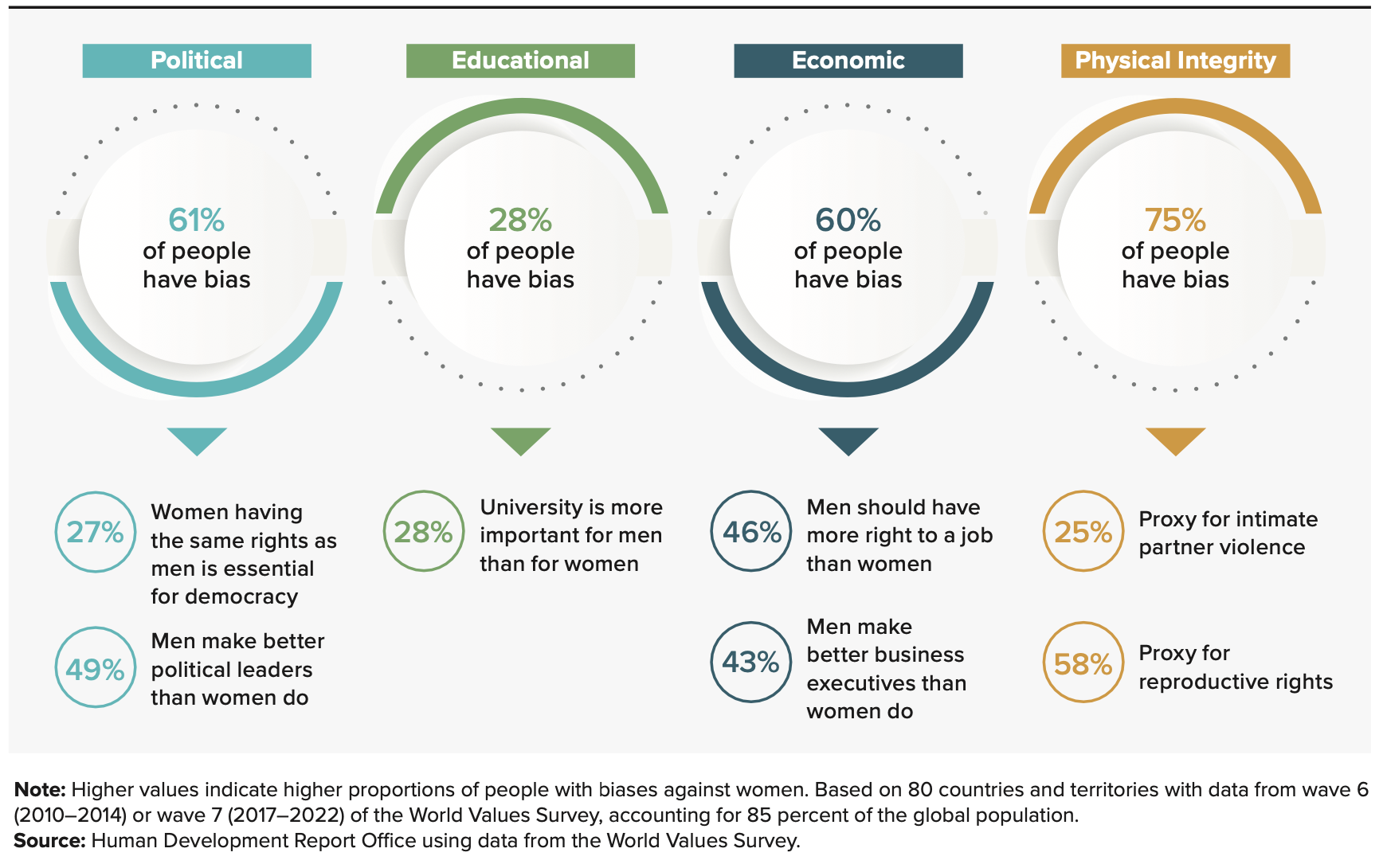
Why do women still face an uphill battle in attaining and exercising political power, despite the removal of many formal barriers to holding political office?
Elevating women to political power can be a powerful lever for changing social norms, but it alone does not determine a shift in norms. On the one hand, for countries where women have held the highest political office (as a head of state or head of government) in the past decade, changes in the GSNI were nearly three times greater than in countries where women have not (a change of 7.6% points in the former compared to 2.7% points in the latter). On the other hand, women leaders often risk being judged more harshly than their male counterparts. This includes issues such as online and in-person violence against women in politics, as well as the objectification of female candidates, and gendered coverage in the media. When women do become leaders, norm changes can go in either direction—towards greater acceptance of women’s leadership or a greater backlash against women.
These barriers are not inevitable. Biases in social norms are not intractable—it is up to us to change. Gender social norms have changed in the past and continue to change due to innovations and policies. Examples include expanding universal primary education for girls, the invention and use of the birth control pill for women for family planning, increased labor force participation of women, facilitation of microfinance for women entrepreneurs, wider and inclusive paternity leave policies
To drive change towards greater gender equality, we need to focus on expanding human development through investment, insurance, and innovation. Strengthening social protection and care systems that reach women can serve as insurance, increasing women’s bargaining power at the household level, promoting financial inclusion, supporting long-term income generation and building agency. Enhanced control over assets can shift power relations and provide insurance in the face of external shocks. For example, in Mexico UNDP is working with the Food and Agriculture Organization of the United Nations and the government of Chiapas to strengthen Tzotzil women’s access to finance and the labour market and is building women’s networks to boost women’s social capital. Encouraging innovative interventions can create tipping points for pervasive gender norms. For instance, regulating gender misinformation and disinformation and addressing hate speech and online violence—all influenced by biased gender social norms—can go a long way towards women feeling more in control over their own lives.
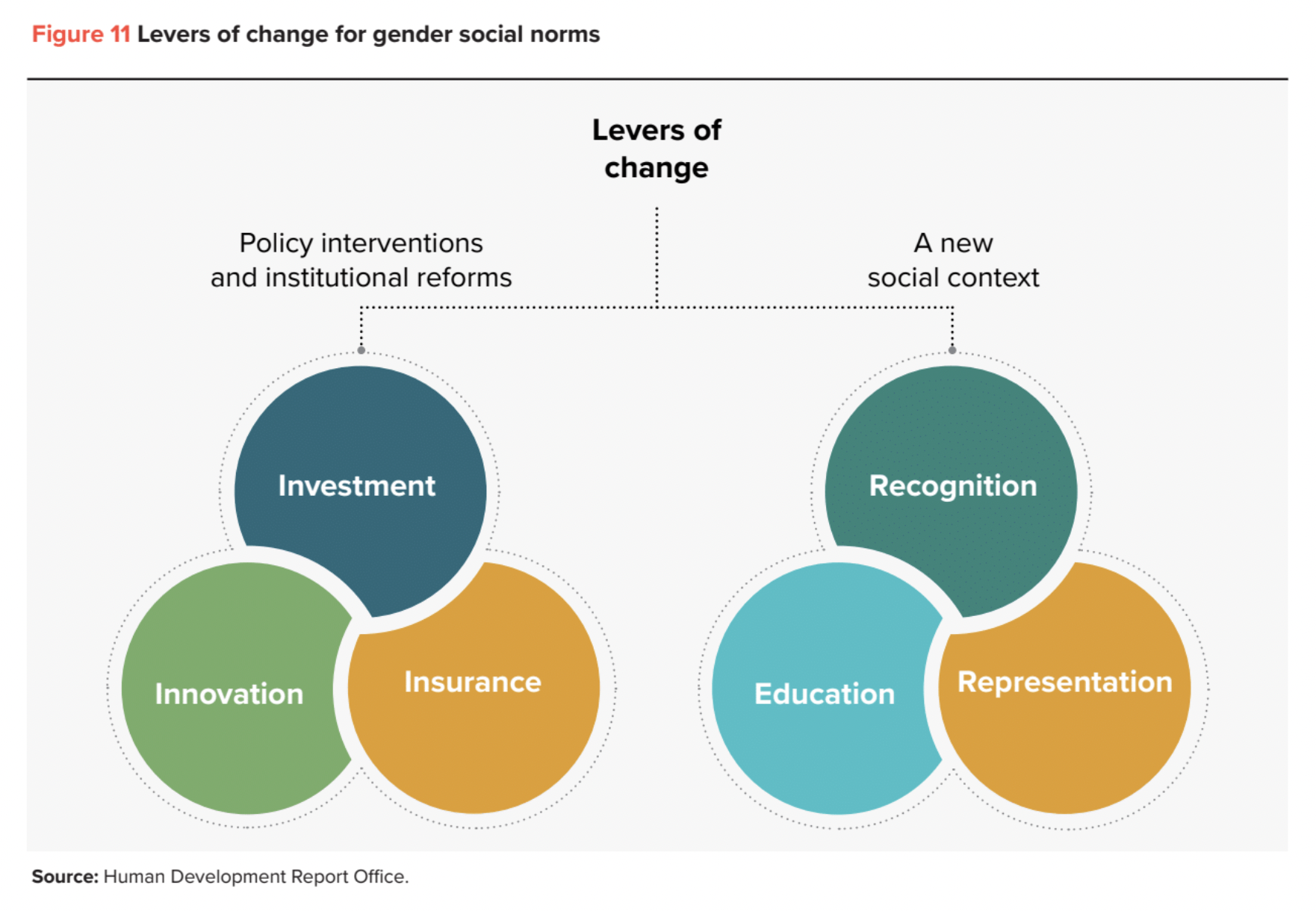
We are continuing to support Gender Equality focused human development through our global initiative, The Gender Equality Seal for Public Institutions which celebrates public institutions and governments striving to be more inclusive and working to create societies where women and men have equal opportunities. To learn more about the Gender Seal please visit our site here.
